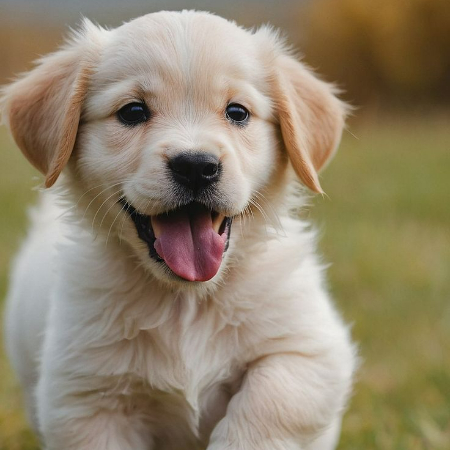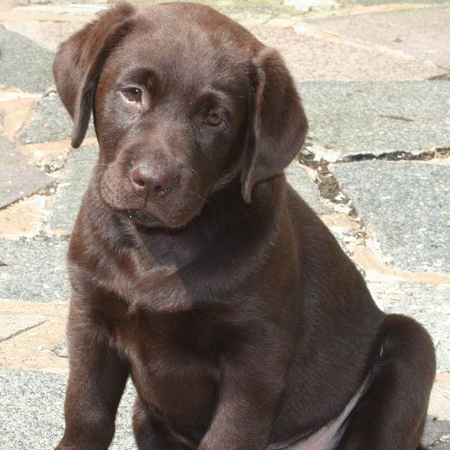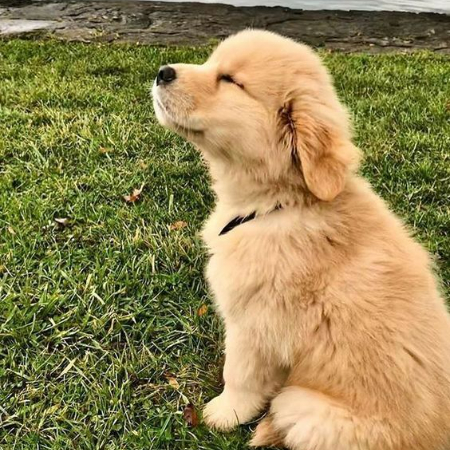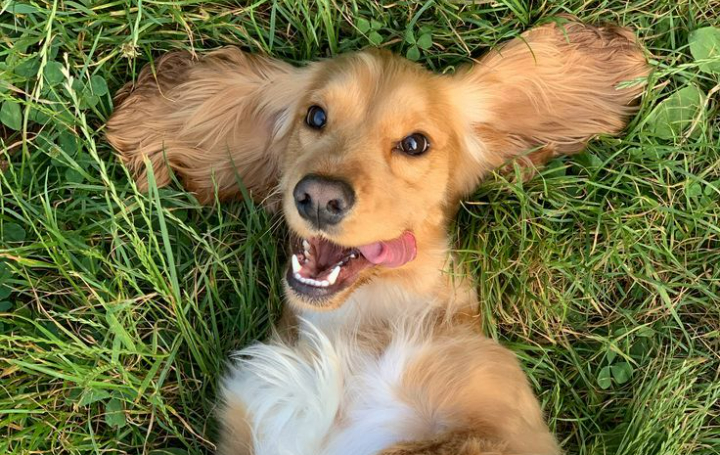“Puppy Development Stages: What to Expect in Your Dog’s First Year”
The most thrilling thing you will ever do is bring a puppy home! Puppies make our lives happier with their small paws and lively playfulness. Puppy growth, however, is a year of constant change, much like that of human babies. Expecting the unexpected can help you raise a happy and healthy dog because every stage of their development is different.
This post will take you step-by-step through the first year of your puppy’s life and offer you advice on how to enjoy every moment.
1. Newborn Stage: 0–2 Weeks
Puppies rely entirely on their mother from the moment of birth. They cannot stand or walk at birth and have their eyes and ears closed for the first two weeks of life. All they do is eat, sleep, and seek out warmth by cuddling up with their siblings.

What is going on right now:
Puppies find their mother and eat by using their senses of touch and scent.
They put on weight swiftly; within the first week, they nearly doubled in size.
Their basic reflexes, such as sucking and crawling towards warmth, start to develop.
Your role: Feeding the puppy every few hours and providing a warm, quiet area is essential if you’re caring for a dog that young (without its mother). But until they’re ready to go to their forever homes, the majority of breeders or foster families look after the puppies at this point.
2. Transitional Stage: 2–4 Weeks
Puppies begin opening their eyes, perceiving sounds, and being more conscious of their surroundings around the second or third week. The fascinating part starts at this point! Their attempts at walking will be accompanied by slight wobbles, and their socialization with their siblings will increase.
What is going on right now:
Puppies observe fuzzy shapes when their eyes open.
They start to hear sounds when their ears open.
As they grow curious, they will attempt to investigate their surroundings.
Your role: This is a perfect time to begin introducing puppies to gentle human contact while they are still with their mother. They learn to trust others and become acclimated to being petted gently.
3. Socialization Stage: 3–12 Week
One of a puppy’s most important developmental phases is this one. Puppy learning occurs in the period between three and twelve weeks of life. As they play with their littermates, they pick up valuable social skills like sharing, sharing responsibility, and recognizing boundaries.
Most puppies are prepared to leave their new homes by the time they are 8 weeks old. This is the start of your actual puppy-parenting journey!

What is going on right now:
Puppies are lively, inquisitive beings who love to explore everything!
They start to comprehend what it means to be in their pack’s pecking order, whether it be with you or their siblings.
They develop their ability to bond with people and other animals at this time.
Their individuality begins to come through.
Your role: You have the best opportunity to begin socializing your puppy at this period. Expose them to different situations, people, and canines. As they grow older, they will become less afraid the more they go through today. Enable safe playtime, walk them on short walks, and enroll them in puppy classes.
4. Teething and Training Stage: 3–6 Months
This is the time when puppies begin to teethe, so brace yourself! Puppies lose their baby teeth and gain adult ones, just like human newborns do. This can cause them to gnaw on pretty much everything. Prepare yourself for plenty of playful chaos, this stage is full of excitement.
What is going on right now:
Puppies will chew to relieve the discomfort of their teething gums.
Their coordination and muscles are getting better, and they are growing quickly.
They begin to comprehend fundamental cues like “come,” “stay,” and “sit.”
They might start pushing limits and seeing how much they can get away with.
Your Role: You have a crucial role in this training phase. Employ positive reinforcement, giving your dog lots of treats and praise to teach him good behavior. It’s vital to be consistent. Because pups don’t yet comprehend what’s appropriate to chew on, make sure you provide them with lots of chew toys to aid during the teething stage and exercise patience!
During this phase, house training and crate training are equally critical. Provide a regular schedule for toilet breaks and provide them incentives for good behavior. Don’t forget that developing positive habits from a young age is crucial.
5. Juvenile Stage: 6–12 Months
Though they’re still a puppy, they’re starting to show signs of independence. Compare this period to that of a dog’s “teenager.” Their energy levels will be high, they will push boundaries, and they might even experience a phase of rebellion. That being said, you and your partner will succeed if you maintain your training and have patience.
What is going on right now:
As they learn their role in the group, puppies could become more challenging.
Their strength, speed, and coordination are all increasing.
Hormones may start to take effect at 6–7 months (especially if they haven’t had their teeth or been spayed or neutered), and you may notice some new behaviors such as territorial marking or increased aggression toward other dogs.
Though they may settle down a little, they are still lively, especially if they are receiving lots of activity.
Your role: Continue your training! Though they still want your direction, it’s simple to let go when puppies start to resemble grownups. To help them release their energy, make sure they have lots of playtime, walks, or games. Keep socializing them and exposing them to new things.
Talk to your veterinarian right away if your dog hasn’t been neutered or spayed. Their long-term health is improved and some undesirable behaviors may be helped by this.
6. Adolescent to Young Adult Stage: 1 Year and Beyond

Bravo! Your puppy is now growing into an adult after you saw it through its first year. As they become older, you’ll probably notice a change in your dog’s behavior, even if they’ll still occasionally seem frisky and full of energy. Even though they’ll be more relaxed and quiet, each dog breed is unique, and some continue to be playful well into old age.
Currently, what is going on is:
Although some larger breeds may continue to develop a little bit more, puppies eventually reach their maximum size.
They tend to be less prone to abrupt mood swings and have more stable personalities.
Though frequent exercise may make it simpler to control their enthusiasm, they will still enjoy playing.
Your role: Keeping up the routines and behaviors you’ve developed over the previous year is all that’s required at this point. Maintain training schedule, provide lots of mental and physical challenges, and enforce rules and boundaries consistently.
Even though they might not require as much direct supervision right now, your dog still needs love, care, and regular training to be happy and healthy.
Final Thoughts
Bringing a puppy through its first year of life is an amazing, and occasionally difficult, experience. It’s very exciting to watch them mature from clumsy babies to self-assured dogs. From late-night bathroom trips to the excitement of witnessing your dog learn a new trick, every stage offers fresh experiences.
You can ensure your puppy has everything they needs to thrive by being aware of each developmental stage and being ready for both the highs and lows. With a puppy, there’s never a dull moment, so the most important things to remember are to be persistent, patient, and always up for fun!
Doglime for more dog-related information.
Tags










